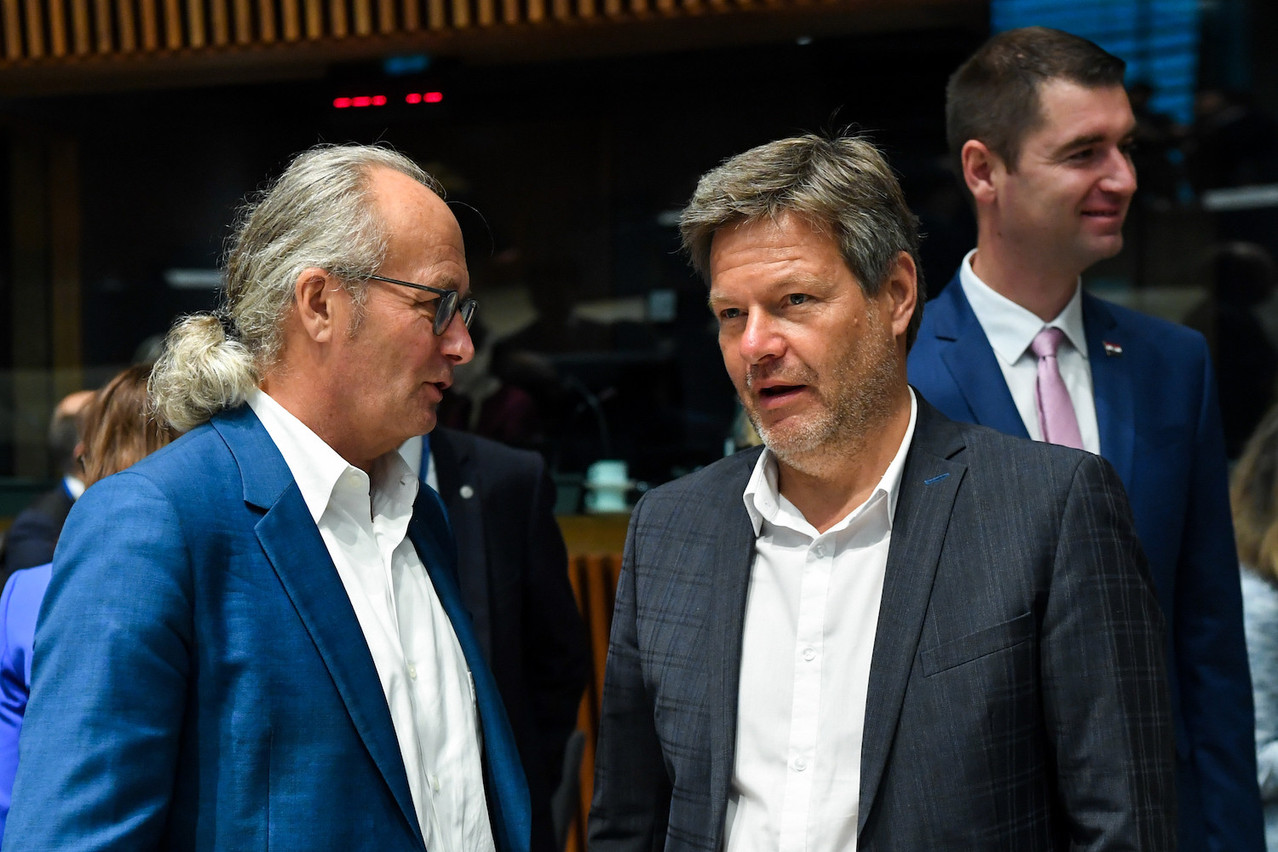The EU’s energy ministers are meeting in Luxembourg and Monday and Tuesday to discuss the energy supply and prices in the context of the war in Ukraine. On Monday, they adopted new rules for countries to fill gas storage facilities to 80% of capacity by November this year. They also struck a tentative agreement on an energy savings directive and are set to begin talks with the European Parliament to enshrine an energy savings target into law.
“The situation overall isn’t rosy,” said energy minister Claude Turmes (déi Gréng) on Monday during a press conference on the sidelines of the council meeting. “We must be prepared that Russia will bring gas deliveries to Europe down to zero.”
Germany last week triggered the “alarm” stage of its emergency plan to deal with gas shortages after Russia cut flows through its Nord Stream 1 pipeline to 40% of capacity citing problems with equipment. Flows will stop completely between 11 to 21 July for maintenance works.
Russia has cut supplies to twelve EU countries since the EU started implementing sanctions over the country’s invasion of Ukraine.
Industry to cut energy
“Saving is extremely important,” said Turmes. The government, together with energy suppliers and network operators is planning a campaign to raise awareness on ways to save energy and become more efficient.
This includes a survey with industry federation Fedil to find out where companies and industrial businesses can cut back. Savings of up to 10% should be possible, Turmes said.
Like Germany, Luxembourg is considering offering loan guarantees to utility companies to purchase gas as these intermediaries are struggling to pay under the current market prices and in competition with other markets. Germany is providing €15bn in loans but Turmes did not indicate an amount for the grand duchy.
There is a plan already in place on how to deal with shortages and which sectors of the economy to cut off first. Homes and essential infrastructure are protected under this plan and will be the last to experience rationing.
EU-wide measures
But a much broader view is necessary at EU level, the energy minister warned. If, for example, industry in Slovakia was forced to shut down but could continue in Belgium, because the country has other supply lines, this could create friction.
“We must be careful not let ourselves be played off against each other,” the minister said, adding that it is Russia’s aim to sow division among EU members.
Turmes had previously suggested and EU-wide speed limits on motorways to save oil--another fossil fuel at record high prices. “The oil price is high because at world level demand is high,” he said on Monday. “This will not disappear.” As Chinese cities emerge from lockdown, and summer holiday driving season in the US kicks off, demand is set to rise.
Luxembourg’s energy minister is pushing for the EU to jointly consider implementing a 10-point plan by the International Energy Agency, which also includes car-free Sundays in large cities, avoiding business travel and cutting down on individual transport. “Only if we stand together can we have an influence on the oil price.”
Parliament earlier this month adopted a package to introduce a , which will help boost purchasing power for households in the grand duchy. A cost-of-living allowance has been raised with a special energy bonus for low-income families. “It’s a very tough situation, especially for people who have a lower income,” Turmes said.
Earlier this year, the government revamped its “” programme, which provides subsidies for energy friendly home renovation or the purchase of electric cars. Through its , it wants to raise more awareness about saving energy.
“It will maybe be a tough winter for all Luxembourgers, for all Europeans,” Turmes said.
